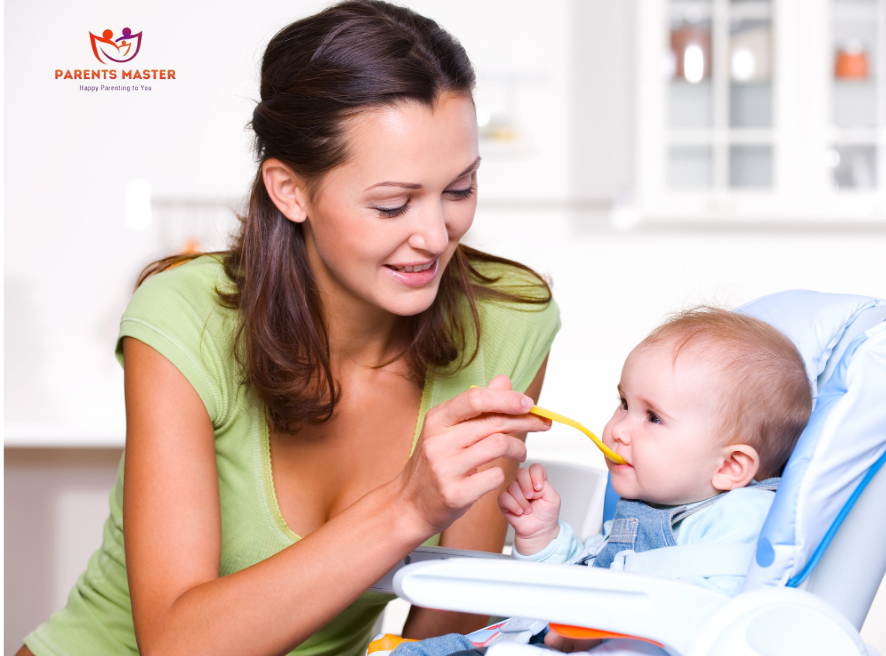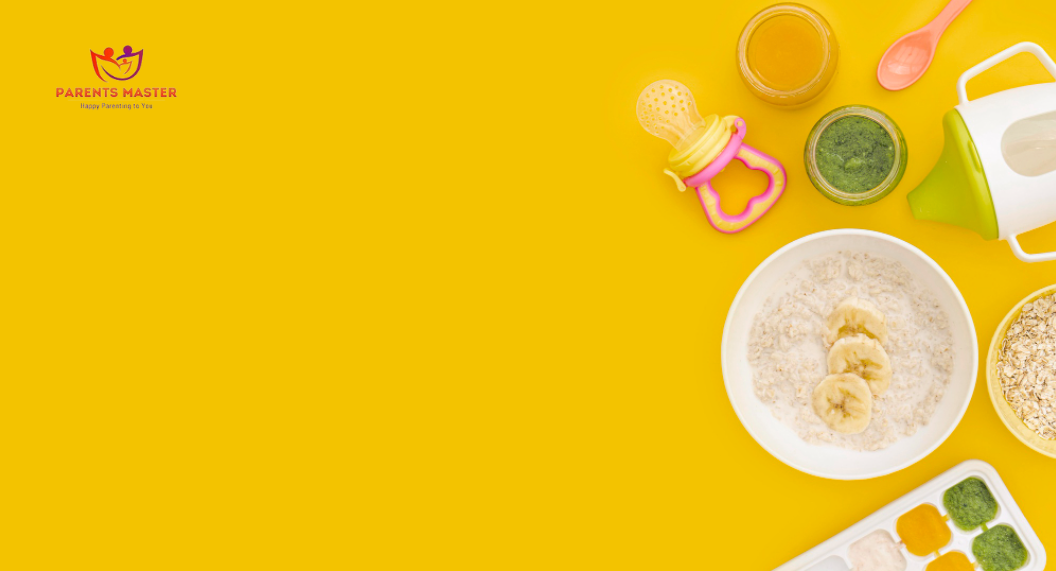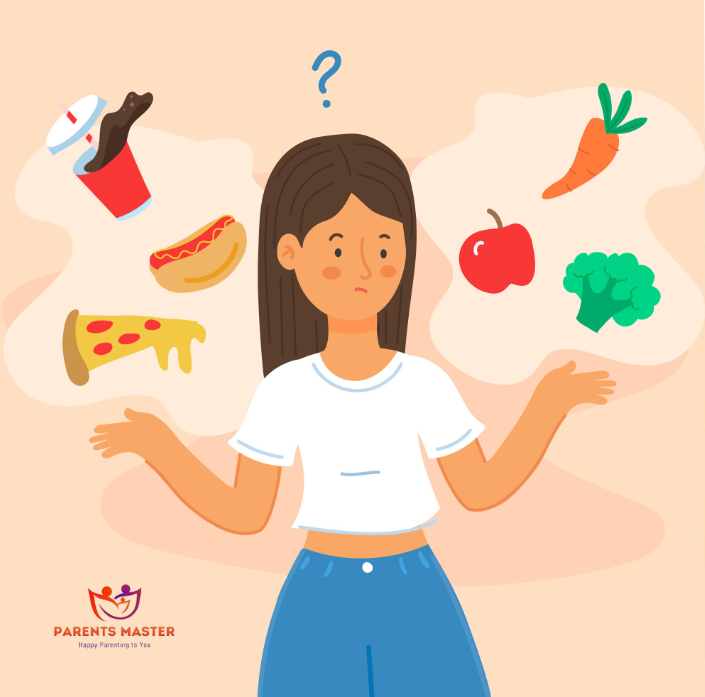Feeding Your Baby: When To Start With Solid Foods

The Dietary Guidelines for Americans and the American Academy of Pediatrics suggest that parents or guardians must introduce foods other than breast milk or infant formula to children when they are about six months old. It’s not at all recommended to introduce foods before four months.
Often, parents are curious to know if the child is ready for foods other than breast milk or infant formula. Here is this article you will be knowing details about feeding your baby with right foods.
Signs That Your Child Is Developmentally Ready

- The child sits up alone or with support.
- Chooses to open the mouth when food is brought near him or her.
- Can control the head and neck.
- Swallows food rather than pushing it back out onto the chin.
- Grabs objects to the mouth.
- Tries grasping small objects, such as toys or food.
- Chooses to Transfer food from the front to the back of the tongue attempting to swallow.
What Food To Serve & When

- First, you need to continue feeding your baby breast milk or formula and set the limit up to 32 ounces a day. After you do that, follow up with other foods.
- Start simple, and offering single-ingredient foods that contain no sugar or salt is recommended. Wait between each new food to see if your baby reacts. The common reactions include diarrhea, a rash, or vomiting. First, you should start with single-ingredient foods, then offer them in combination.
- Introduction of important nutrients is a must. In this regard, iron and zinc found in pureed meats, single-grain, and iron-fortified cereal are important nutrients in the second half of a baby’s first year.
- Feed Baby cereal basics. For that, you can Mix one tablespoon of a single-grain, iron-fortified baby cereal along with 4 tablespoons (60 milliliters) of breast milk or formula. Make sure that you don’t serve it from a bottle. Help your baby sit upright and offer the cereal with a small spoon after a bottle- or breast-feeding. Go slow and Start by serving one or two teaspoons.
- You must observe your baby’s ability to swallow runny cereal in the initial stage. Later, you can mix it with less liquid and gradually increase the serving sizes. Various single-grain cereals such as rice, oatmeal, or barley will be highly favorable for the baby’s health. But make sure you Avoid feeding your baby only rice cereal due to exposure to arsenic.
- Introduce single-ingredient pureed vegetables and fruits. Add fruits that contain no sugar or salt, and while you’re doing so, wait for three to five days between introducing each new food.
- Finely chopped finger foods will be highly favorable as well. By ages eight months to 10 months, babies can handle small portions of finely chopped finger foods, including soft fruits, cheese, well-cooked meat, vegetables, pasta, baby crackers, and dry cereal.
Foods To Avoid
Some Foods cause allergies, including peanuts, seafood, nuts, wheat, eggs, cow’s milk, and soy. Talk to your doctor about food allergies, especially when one of the close family members has allergies, food allergies, or allergy-related conditions. Infants who suffer from severe eczema or egg allergies have allergies to peanuts. Introduce these foods to your child only after talking with the health practitioner.
Possible Signs Of Allergic Reactions Include

- Rash
- Bloating or an increase in gassiness
- Diarrhea
- Vomiting
In case you notice any of these, make sure to get medical care right away. There might be chances that the baby will suffer from more severe allergic reactions, like drooling, wheezing, hives, or trouble breathing. Don’t offer that particular food again until you talk with your doctor.
Don’t Feed Babies With

- Foods with added sugars, no-calorie sweeteners
- Unpasteurized juice, milk, yogurt, or cheese. You may offer pasteurized yogurt and cheese.
- High-sodium food, honey, such as those that cause botulism in babies.
- Regular cow’s milk or soy beverages before 12 months.
- Foods that may cause choking, including hot dogs, raw carrots, grapes, popcorn, and nuts
- Tips to follow while feeding your baby solid foods
Most parents try commercially prepared baby foods in small, convenient containers, and manufacturers meet strict safety and nutrition guidelines. When you choose to prepare your baby foods at home, keep in mind some things:
Washing your hands well and often is a must. To preserve the nutrients, cook it in ways that keep the most vitamins and minerals intact. One of the best approaches is steaming or baking fruits and vegetables rather than boiling them.
Freeze portions that you won’t use right away. Whether buying the baby food or making it yourself, keep in mind maintaining texture and consistency. Babies. In the beginning, babies should have finely puréed single-ingredient foods.
After the baby is eating individual foods, offer a puréed mix of two foods. As the baby gets older, you may try feeding a greater variety of tastes and textures.
If you use prepared baby food in jars, take out some amount of it in a bowl to feed your baby. Do not feed right from the jar, as bacteria from the baby’s mouth can contaminate the remaining food. In this case, you refrigerate opened jars and throw away anything not eaten within a day or two.
Around six months is a good time for your baby to try a cup. It’s worth offering a few cups to find one that works fine. Juice to infants younger than 12 months isn’t recommended.
Over the next few months, you may introduce a variety of foods from all the food groups. Sometimes, it takes 8 to 10 tries or more before babies learn to feel habituated to eating new foods.
Changes To Expect After My Baby Starts Solids
When your baby starts eating solid foods, you will notice that the stools will become more solid and variable in color. The added sugars and fats are responsible for the stools to hold a much stronger odor, too. Peas and other green vegetables turn the stool a deep green color, while beets may make it red.
Baby’s meals, not strained, may make stools contain undigested pieces of food, including hulls of peas or corn or other vegetables, and what’s worth noting is that all of this is normal. Your baby’s digestive system is still immature. This is the point of life where the organs need time before they can fully process these new foods.
When you notice that the stools are extremely loose, watery, or full of mucus, you need to understand these are the signs of the digestive tract being irritated. What you should do in this case is reduce the amount of solids and introduce them slowly. If the stools continue to loosen, are watery, or are full of mucus, it’s mandatory for you to talk with your child’s doctor and find the reason.
Final Words
As a parent, one needs to note that Good eating habits start early. Your baby needs to get used to the process of eating, including sitting up, taking food from a spoon, and resting between bites while also stopping when full. Why it’s necessary to be mindful of these early experiences is the reason: it will help your child learn good eating habits.
Encouraging family meals as dinner together, as a family, on a regular basis has positive effects on the children. A good variety of healthy foods rich in the nutrients your child needs to be fed to the child promotes growth. Do not overfeed! But if you have any questions about your child’s nutrition or concerns about your child’s eating pattern, talk with your child’s doctor.




